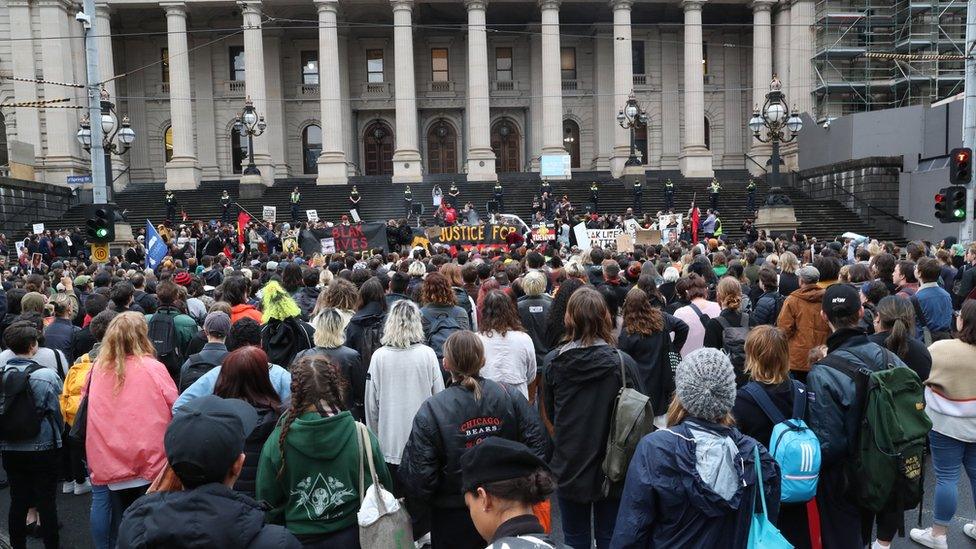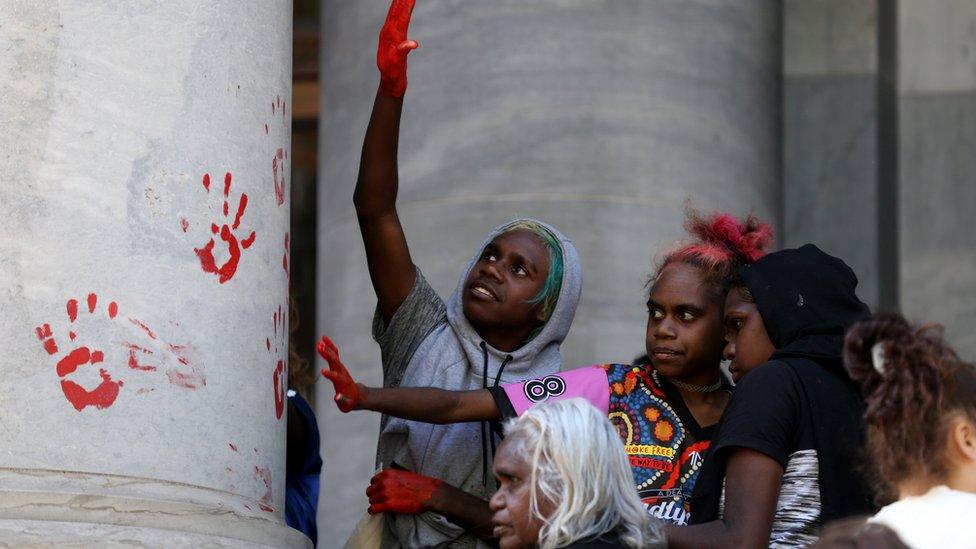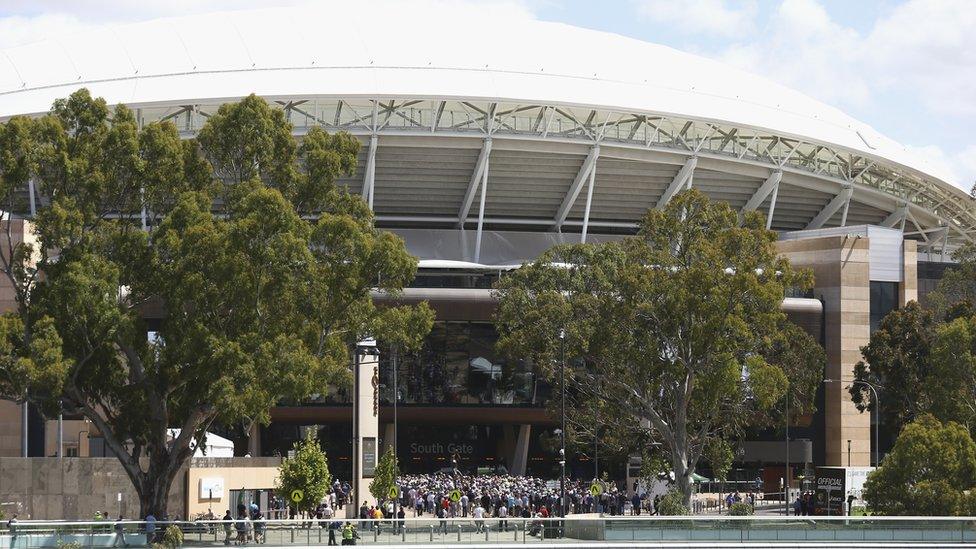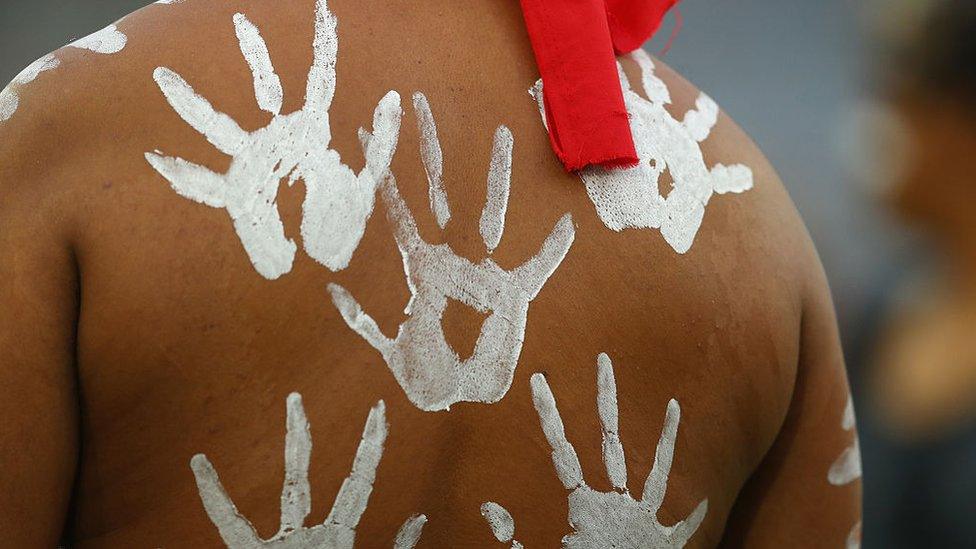Yuendumu: Policeman charged with Aboriginal teenager's murder
- Published

Mr Walker's death has sparked protests around Australia, such as this one in Melbourne
An Australian policeman has been charged with murder over the shooting death of an Aboriginal teenager in a case that has drawn national attention.
Kumanjayi Walker, 19, died after being arrested at a house in the Northern Territory (NT) on Saturday.
His death has sparked community anger and protests across the country.
Constable Zachary Rolfe, 28, was arrested on Wednesday, NT Police said. He will plead not guilty to murder, a police union said.
Mr Rolfe was granted bail following a court hearing and has been suspended with pay.
Police said they would also conduct an internal investigation into the shooting in Yuendumu, a remote community 300km (190 miles) north-west of Alice Springs.
The territory government has called for calm amid rising community tensions that have seen crowds converge on the police station in Yuendumu.
NT Chief Minister Michael Gunner said he acknowledged the Yuendemu community - 85% of whom identify as indigenous - was "hurting and grieving".
What is known about the case?
Mr Walker was shot sometime after two police officers went to arrest him for breaches of his suspended sentence, local media reported.
He died in the police station at Yuendumu. There was no medical care in the town at the time - medical staff from another town arrived after he had died.
NT health officials said the medical clinic in Yuendumu had been unstaffed due to safety concerns about break-ins.

A protest outside a state parliament in South Australia
The Royal Flying Doctor Service said it had also delayed travelling to the site because of safety concerns.
Mr Walker's family was notified of his death hours after he died, Australian media reported. Officials have classified his death as a "death in custody".
He is the second Aboriginal person to have died in the past two months after being shot by police. Joyce Clarke, 29, was fatally wounded in Western Australia in September.
Australia conducted a royal commission inquiry in 1991 into Aboriginal deaths in custody, but critics say recent reviews have been misleading and not enough is being done to address the issue.
.
- Published30 March 2019

- Published12 February 2018
